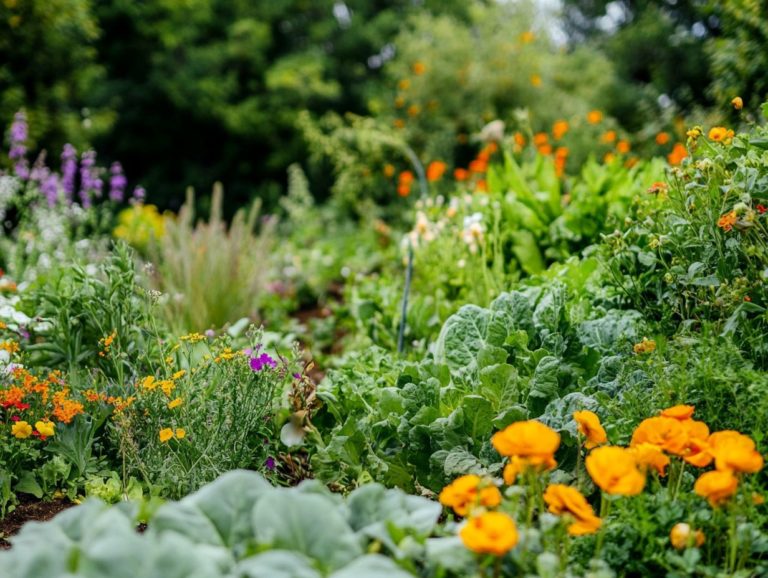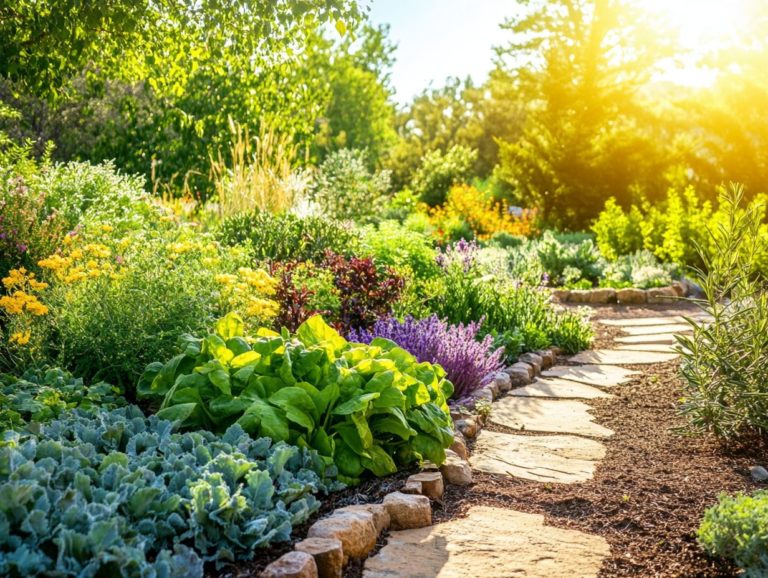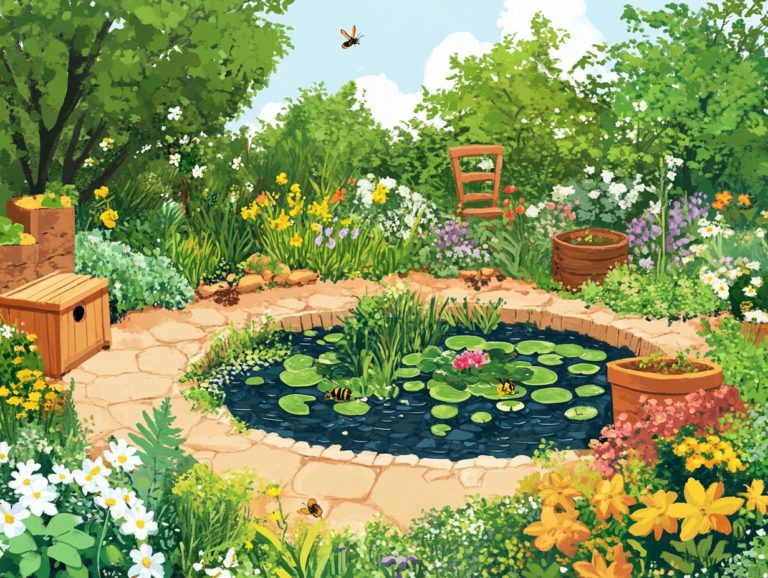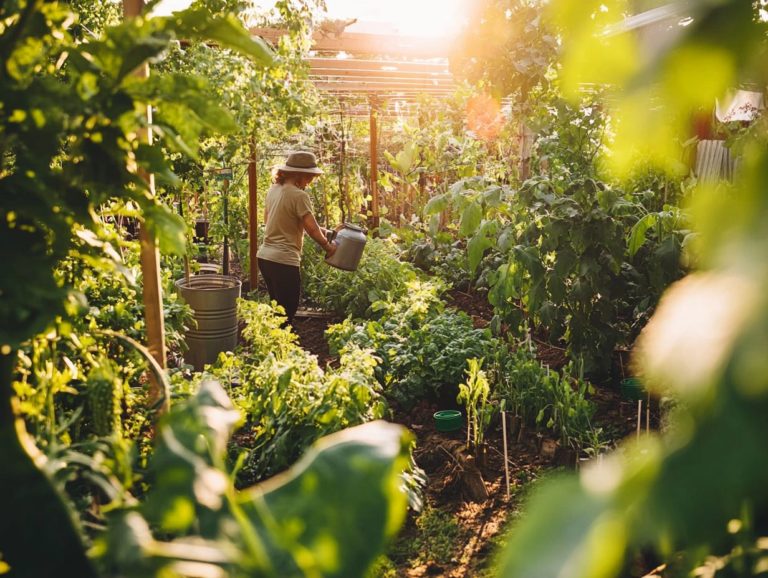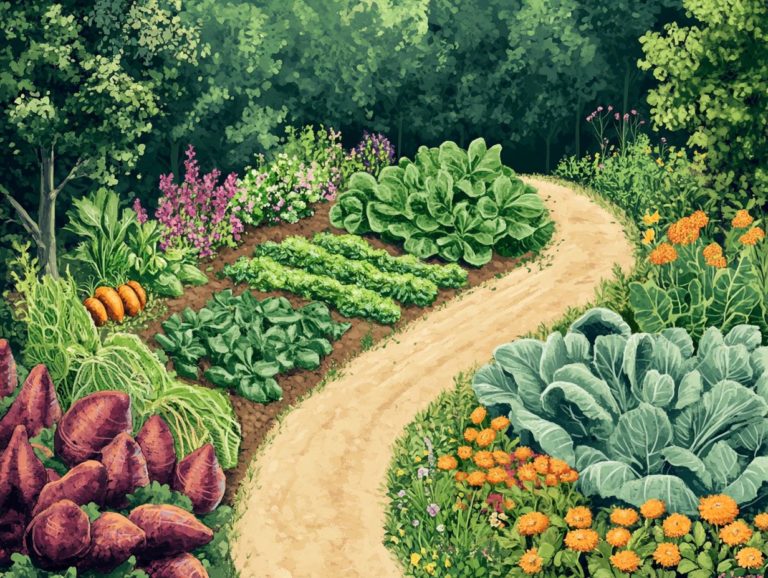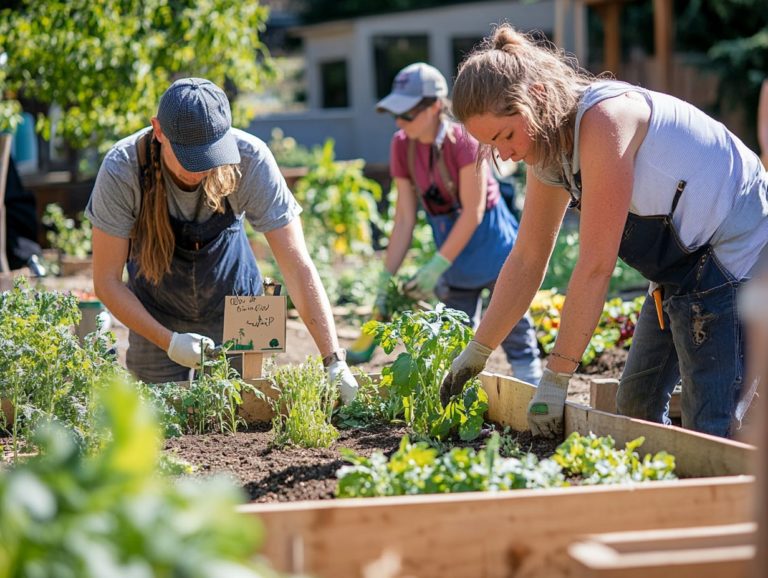What is the Importance of Sustainability in Gardening?
Sustainability in gardening transcends mere trendiness; it represents a fundamental approach that aligns your passion for nature with the imperative to safeguard the environment.
This article delves into the essence of sustainable gardening, highlighting its myriad benefits environmental, economic, and social. Key principles emerge, such as the importance of utilizing organic materials and conserving precious resources, while promoting water conservation and food security.
By embracing these practices, you can cultivate your garden while contributing to a healthier planet. Engaging with nature also enhances your mental health through stress reduction. Join the movement for a greener future today!
Contents
Key Takeaways:
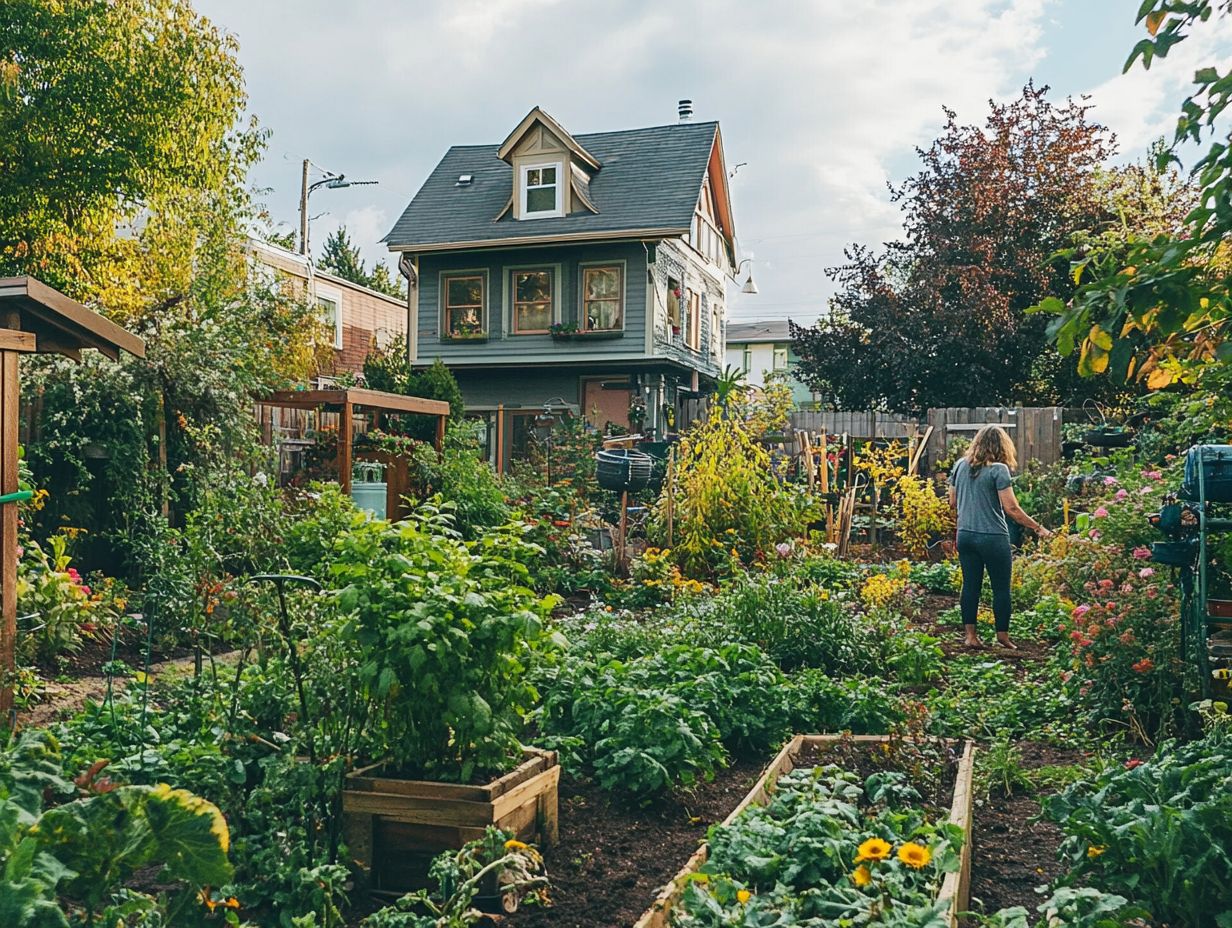
- Sustainability in gardening means using environmentally-friendly practices to create a healthier, greener world.
- Sustainable gardening preserves natural resources, saves money, and promotes healthy lifestyles through outdoor activities.
- Adopting sustainable principles like using organic materials, conserving water and energy, and supporting biodiversity can positively impact the planet and future generations.
The Concept of Sustainability in Gardening
The concept of sustainability in gardening encapsulates practices that promote environmental wellness, secure food sources, and empower communities through eco-friendly gardening methods.
By embracing the principles of ecological sustainability, you can cultivate gardens that yield nutrient-rich produce and enhance the health of local ecosystems.
This holistic approach underscores the significance of utilizing organic materials, conserving resources, and boosting biodiversity, ultimately creating vibrant green spaces that benefit both you and the surrounding local wildlife and beneficial insects.
Defining Sustainability in the Context of Gardening
Defining sustainability in gardening involves understanding the principles behind eco-friendly practices and the importance of organic materials for biodiversity conservation. This fosters vibrant ecosystems that support a rich variety of plant and animal life, essential for ecosystem balance.
Consider sustainable practices like companion planting (growing different plants together for benefits) and garden towers (vertical gardens to save space) to maximize your urban gardening space.
- Crop rotation
- Companion planting
- Using compost as a natural fertilizer
These approaches minimize dependence on chemical inputs and enhance soil health, creating a flourishing habitat for beneficial organisms like pollinators and earthworms. By using organic materials, you can build resilience against pests and diseases, ensuring your garden remains productive and balanced while promoting healthy soil.
Benefits of Sustainable Gardening
Sustainable gardening offers a wealth of benefits across environmental, economic, and social realms, fostering healthier lifestyles and enriching vibrant communities.
Embracing this approach enhances your surroundings and cultivates a sense of connection and well-being within your community.
Environmental Benefits
The environmental benefits of sustainable gardening are remarkable. They play a crucial role in conserving a variety of plants and animals, enhancing soil health, and minimizing your overall carbon footprint.
Integrating native plants into your garden creates a welcoming habitat for local pollinators like bees and butterflies. This helps foster a balanced ecosystem. Native species are typically more resilient, requiring less water and fewer chemicals. This leads to healthier soil rich in organic matter.
Employing techniques such as composting and crop rotation can further boost soil vitality. As a result, you will have a lively garden filled with diverse life.
Opting for practices that cut down on energy consumption, like using solar-powered tools, allows you to adopt a more sustainable gardening approach. This actively incorporates eco-friendly practices. Such choices effectively reduce greenhouse gas emissions and transform your garden into a valuable contributor to a healthier planet.
Economic Benefits
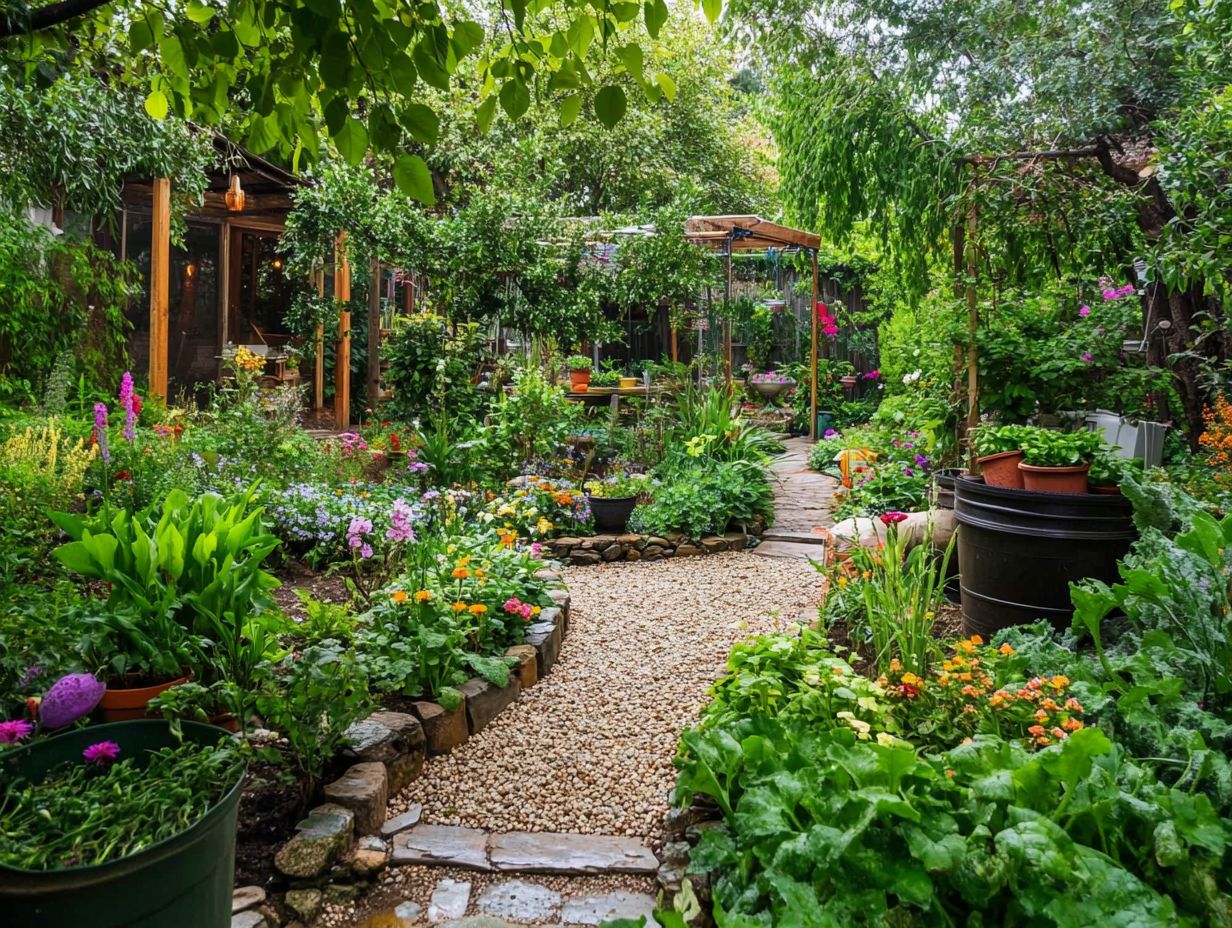
Embracing sustainable gardening can unlock significant economic advantages. It fosters self-sufficiency and enhances your food provisioning through organic materials. This practice helps you grow your own fruits and vegetables while substantially reducing your grocery expenses over time.
By cultivating your garden with organic materials like compost and natural fertilizers, you can lessen your reliance on store-bought produce, which often comes with a hefty price tag. Encouraging a culture of sustainable gardening within your community strengthens economic resilience and creates networks of individuals who can share resources, knowledge, and surplus harvests.
This collaborative approach boosts food security and inspires a movement toward eco-friendly practices that benefit both the environment and the economy.
Social Benefits
Sustainable gardening can transform your community! It offers various social benefits, including emotional regulation and overall wellness. It enables communities, enhances mental well-being, and creates opportunities for engaging outdoor activities.
Nurturing a sense of ownership and collaboration brings neighbors together, fostering stronger interpersonal connections. This shared commitment to caring for the environment can shine during events like Health Education Week.
The focus on mental health during such events aligns beautifully with the therapeutic aspects of gardening. Participants discover the joys of nature and reap the stress-relieving benefits of getting their hands dirty outdoors.
These activities encourage physical movement while cultivating a supportive environment. Community members come together, share experiences, and forge lifelong friendships through gardening tasks and outdoor activities. In doing so, they enrich the social fabric of the area.
Principles of Sustainable Gardening
The principles of sustainable gardening center on employing organic materials, championing water conservation, and fostering biodiversity through eco-friendly practices like regenerative gardening. This gardening helps restore the land. By embracing these guidelines, you cultivate not only a thriving garden but also a healthier planet.
Using Organic and Local Materials
Using organic and local materials is key to sustainable gardening. This method improves soil health and supports local wildlife.
By incorporating organic practices, you can significantly reduce harmful pesticides, fostering a healthier ecosystem. Start your compost bin today! Composting enriches your soil by using kitchen scraps and yard waste, diverting waste from landfills and providing essential nutrients for your plants.
Plant native flowers to attract pollinators and create habitats for local wildlife, such as birds and butterflies. This promotes a biodiverse environment and natural pathways for wildlife. Embracing these techniques contributes to a thriving, resilient garden ecosystem.
Conserving Water and Energy
Saving water and energy is crucial for a sustainable garden. You can employ techniques that enhance ecological sustainability and promote efficiency.
Methods like drip irrigation deliver water directly to plant roots, minimizing waste. Harvesting rainwater lessens reliance on municipal supplies and offers a natural resource for your plants.
Using solar-powered garden lights and choosing native plants are excellent energy-saving practices. These integrated approaches support plant health and cultivate a sustainable ecosystem, showcasing the beauty of conservation in your gardening efforts.
Supporting Biodiversity
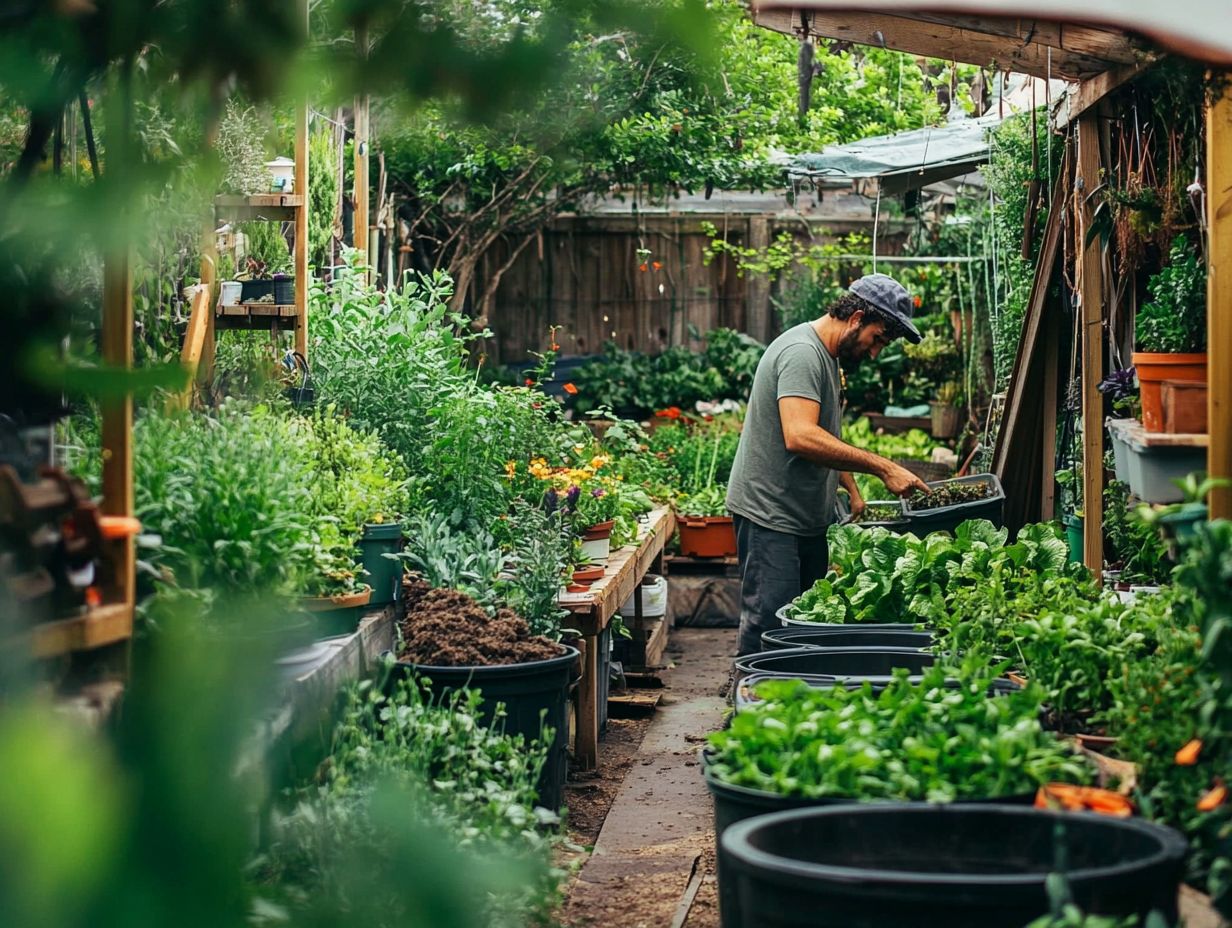
Biodiversity is essential. Choose native plants and create natural habitats for wildlife while promoting biodiversity conservation.
Incorporating a diverse array of native species enhances the resilience of your landscape. Native plants, perfectly adapted to your region’s climate, typically require less water and maintenance making them environmentally responsible choices.
These plants provide food and shelter for various species, fostering healthy interactions among flora and fauna. Implement ecological corridors, like hedgerows or pathways lined with flowering plants, to connect fragmented habitats, allowing animals to traverse safely and restore ecological balance.
This thoughtful approach bolsters local biodiversity and elevates the beauty and functionality of your garden.
Implementing Sustainable Practices in Your Garden
Embrace sustainable practices in your garden to make a positive impact. Start composting, use garden towers, and engage in community activities that contribute to ecological sustainability.
Each choice you make enriches your garden and nurtures the environment. Together, we can cultivate a greener future!
Tips and Techniques for Sustainable Gardening
Embracing sustainable gardening invites you to explore a wealth of tips and techniques, ranging from effective gardening tasks to implementing eco-friendly practices and promoting crop diversity.
These methods contribute to the health of your plants and the vibrancy of your garden. They also cultivate a deeper connection with the environment. For instance, engaging in crop rotation can significantly enhance soil fertility while reducing pest populations.
By using organic materials, you can promote healthy soil and support local wildlife. Companion planting allows you to pair plants that support each other’s growth, creating harmony in your garden.
Using integrated pest management techniques helps you deal with pests effectively, minimizing reliance on harmful chemicals and supporting pollinators that are vital for protecting different kinds of plants and animals. By incorporating these practices, you can foster a thriving ecosystem that benefits both flora and fauna, ultimately leading to a more productive and sustainable gardening experience.
Impact of Sustainable Gardening on the Planet
The influence of sustainable gardening on the planet is profound. By engaging in this practice, you actively contribute to environmental wellness, lower your carbon footprint, and embrace a healthier lifestyle through eco-friendly gardening techniques that promote nutrient-rich food.
Creating a Greener and Healthier World
Creating a greener and healthier world through sustainable gardening highlights your role in enhancing green spaces, enabling communities, and practicing environmental stewardship.
Act now! These initiatives can turn lifeless areas into vibrant ecosystems, fostering a sense of belonging among you and your neighbors. By actively engaging in sustainable practices, you contribute to local biodiversity, promote sustainable food sources, and enjoy the therapeutic benefits that nature offers, including stress reduction and improved mental health.
Community gardens become invaluable hubs for you and those around you to gather, share knowledge, and deepen your understanding of ecological responsibilities. This collaborative approach boosts your mental and physical well-being and strengthens social ties, fostering resilience in your community.
It paves the way for more inclusive and sustainable urban environments that encourage physical activity and promote food security.
Frequently Asked Questions
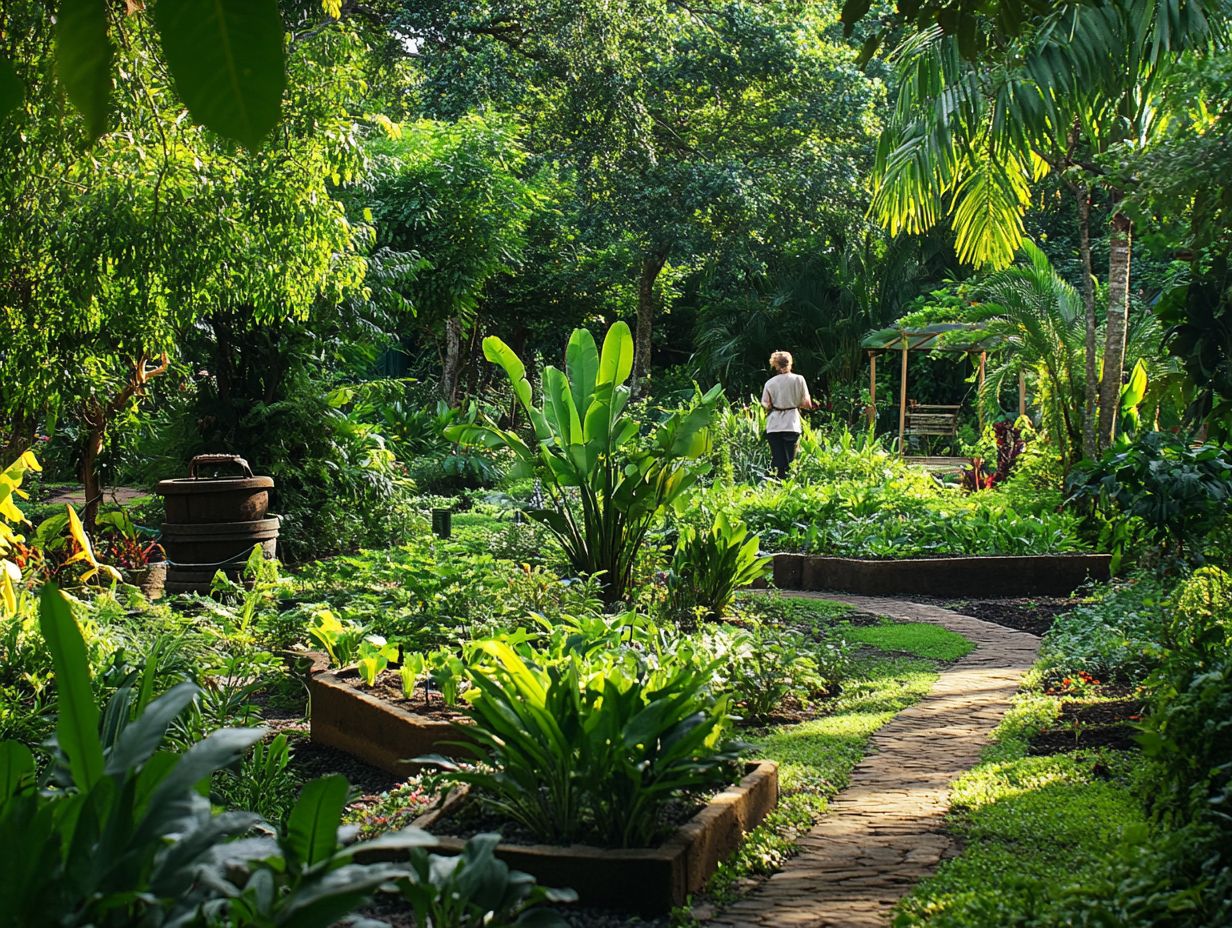
What is the Importance of Sustainability in Gardening?
Sustainability in gardening means growing plants in an eco-friendly way. It focuses on preserving natural resources through practices like water conservation and promoting the long-term health of the ecosystem while meeting the needs of present and future generations with initiatives like home gardening.
Why is Sustainability Important in Gardening?
Sustainability in gardening is important because it helps maintain the balance of the ecosystem. By using sustainable practices, we can reduce the negative impact on the environment and promote healthy soil, air, and water.
It ensures that gardening can continue for generations by supporting food provisioning and sustainable development goals through the promotion of regenerative gardening.
How Does Sustainability Benefit the Environment in Gardening?
Sustainability in gardening helps reduce pollution, conserve natural resources, and minimize waste. By using organic and natural methods, such as organic fertilizers and compost, we can avoid harmful chemicals and pesticides that can harm the environment and its inhabitants.
This fosters ecological sustainability. It also promotes biodiversity and creates healthy habitats for wildlife, including native plants that support beneficial insects and improve overall garden health.
Start your sustainable gardening journey today and make a difference!
What are some ways to promote sustainability in gardening?
Promote sustainability in your garden by using organic fertilizers and conserving water. You can also compost and attract helpful insects to boost plant variety!
Choose native plants and rotate your crops. Reducing plastic and non-biodegradable materials can make a significant impact.
Sustainable gardening focuses on social responsibility. It promotes fair labor practices and supports local communities.
It also provides access to fresh, healthy homegrown produce, fruits, and vegetables for those lacking resources. By working together, we create a more sustainable and equitable food system!
Is sustainability economically viable in gardening?
Yes! Sustainable gardening is economically viable. While there might be initial costs, it ultimately saves money by reducing the need for expensive chemical fertilizers and pesticides.
It enhances wellness benefits for individuals and families, promotes self-sufficiency, and can lower food costs by allowing you to grow your own produce. Start your sustainable gardening journey today!

